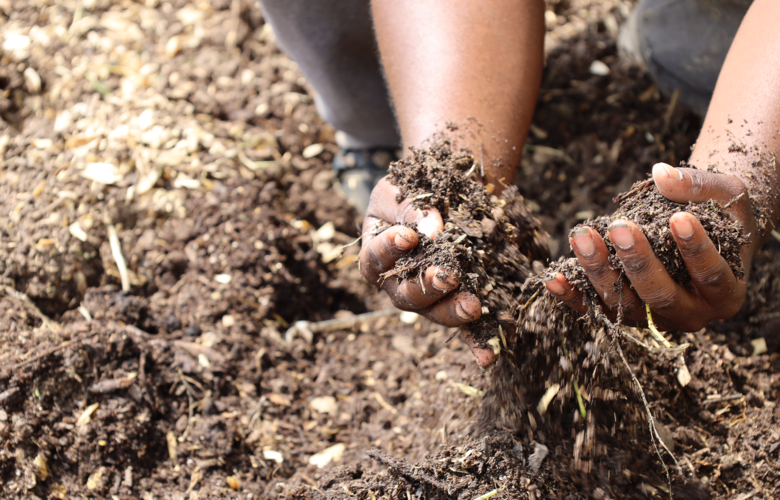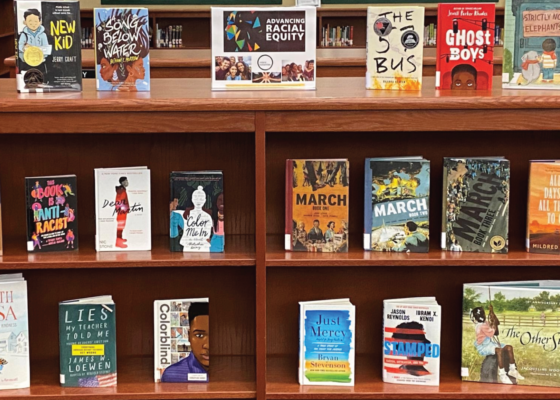Unearthed: Why We Chose This Theme
June 1, 2021Unearthed is a new three-year theme that encourages Hoosiers to discover and discuss their relationships with the natural world.
“The past and its landscapes lie close. They linger in eroded, scattered pieces, both becoming and passing into what I am, what I think we are.”
—Lauret Savoy
Unearthed is a new three-year theme developed by Indiana Humanities that encourages Hoosiers to discover and discuss their relationships with the natural world. Through engaging speakers, a statewide read, a tour of the Smithsonian’s Water/Ways exhibit, Campfires treks, a film series, a podcast and more, Hoosiers will explore how we shape the environment and how the environment shapes us.
In living through the Coronavirus pandemic, many people came to appreciate the outdoors as never before. When isolation in our homes became too much, Indiana’s parks became a refuge and gathering space calling for new exploration and appreciation of our environments. Indiana’s lands have long evoked a sense of wonder. Through the biodiversity of the Indiana Dunes, the sweeping expanse of the Everglades of the North, sprawling rivers that carve paths through vast prairies and the cliffs and caves of southern Indiana, today’s Hoosiers follow generations in being inspired by the state’s unique landscape. We invite you to join us in delving into all that delights us about Indiana’s environments.
However, this renewed love for the outdoors comes at a time when Indiana leads the nation in toxic releases per capita according to the Environmental Protection Agency’s Toxic Release Inventory, and many communities across the state struggle to access safe drinking water. Most important, many of the impacts of pollution and climate change are unjustly borne by communities of color. Given this urgency, we hope that, through this theme, the humanities can bring context, reflection and conversation about our actions toward the land and how the effects are felt by individuals and communities.
During Unearthed, we’ll delve in to how the humanities help us look more deeply at our relationships with the land and its inhabitants. History is not a set of static facts; it guides, governs and gives understanding to our interactions with the natural world today. When you look out your window, visit a park or drive across the state, Indiana’s environmental history can reveal why the land we know as our home looks the way it does. Alongside devastating historic human alterations to the land—the draining of the Kankakee marsh, industrialization in the Indiana Dunes and deforestation across southern Indiana—emerge stories of individuals and communities working to bring awareness to and appreciation of Indiana’s natural places. What are the stories of environmental destruction or renewal in your community? We hope this theme encourages you to dig deeper into your relationships with the land around you.
While the sciences reveal much about the natural world and its workings, the humanities can help us better understand what it means to be human in relation to the more-than-human world. Art and literature, past and present, provide insight into human attitudes toward nature. Writers like Edwin Way Teale and Gene Stratton-Porter, as well as Indiana’s landscape artists, inspire appreciation of our state’s beauty and were early advocates for Indiana’s natural places. Their works contribute to a long tradition of writers, artists and thinkers calling for the conservation and stewardship of Indiana’s lands, which continues today with writers like Scott Russell Sanders and Ross Gay. Through the humanities we can gain a better understanding of the entangled, complex world and what it reveals about the threads of connection in our own lives. During Unearthed we invite you to think about these connections to places in your own life and how that connection inspires action.
During the long history of human interactions with the land, many cultures and beliefs have shaped our relationship. Early European settlers may have created the systems of property, borders and extraction that are familiar to us today, but they were not the first humans to live with and within these lands. Indigenous beliefs, cultures and actions reveal additional relationships and histories of the stolen land that we call home today. We hope this theme reminds us that the land that is now called Indiana was and is the ancestral home of the Myaamia (Miami), Lenape (Delaware), Očhéthi Šakówiŋ (Sioux), Kiikaapoi (Kickapoo), Shawandasse Tula (Shawanwaki/Shawnee), 𐓏𐒰𐓓𐒰𐓓𐒷 𐒼𐓂𐓊𐒻 𐓆𐒻𐒿𐒷 𐓀𐒰^𐓓𐒰^ (Osage), Peoria, Kaskaskia and Bodéwadmiké (Potawatomi) peoples. In acknowledging the ongoing process of colonialism, we honor the tribes forcibly removed from this land and stand in solidarity and support with Indigenous peoples. We are humbled and inspired by the beauty, strength, resilience and sustainability of Indigenous communities, and we hope you’ll work alongside us to continually learn from Indigenous ways of living in partnership with the land and its other inhabitants as we look to the future.
Finally, Unearthed asks us to contemplate what it’s like to live in the Anthropocene, a geological epoch defined by unprecedented human impact on all of Earth’s natural systems. The Anthropocene forces us to look at the ways in which human activities have changed the entire planet—our rivers and oceans, prairies and mountains, air and soil—perhaps irreparably. In 1920 Indiana’s first state forester Charles C. Deam asked, “During the century of our existence, we have spent the rich endowments nature gave us. The next generation will not have our resources. Are we planning to bequeath something to the people of the next century? Will they expect it? Can they rightly do so?” The humanities can help us contemplate Deam’s call from a century ago. How would you answer these questions today? What can future generations expect from us? Are we being good ancestors?
These are the themes we’ll be exploring over the next few years with Unearthed. We hope that you’ll join us in discovering the places that have inspired generations of Hoosiers to write, create, explore, study, save, steward and love this land.
Learn more about how you can participate in events or request funds to bring speakers or resources to your community.




